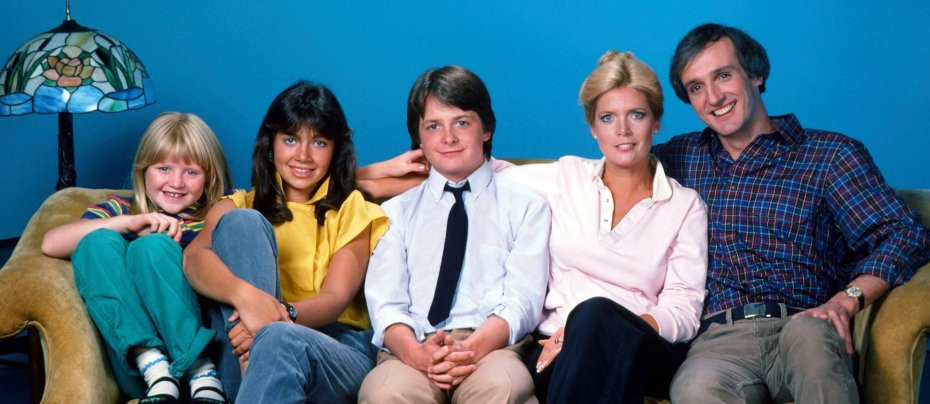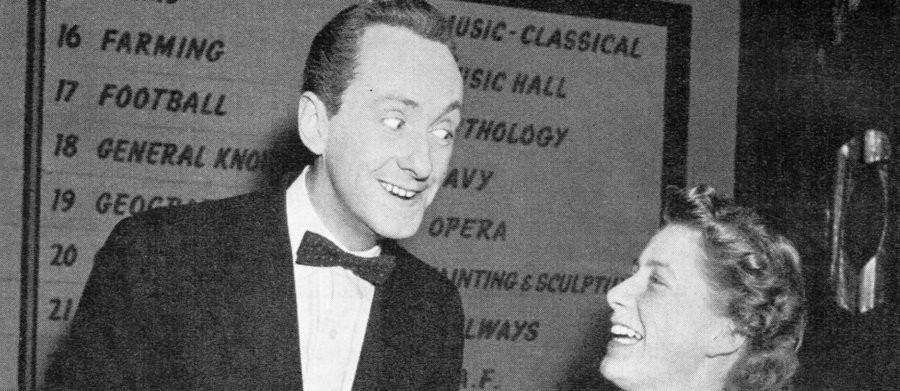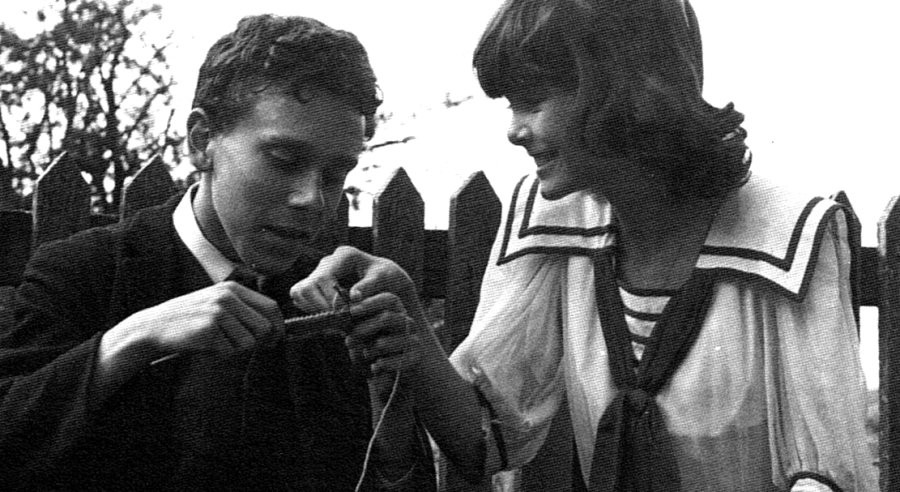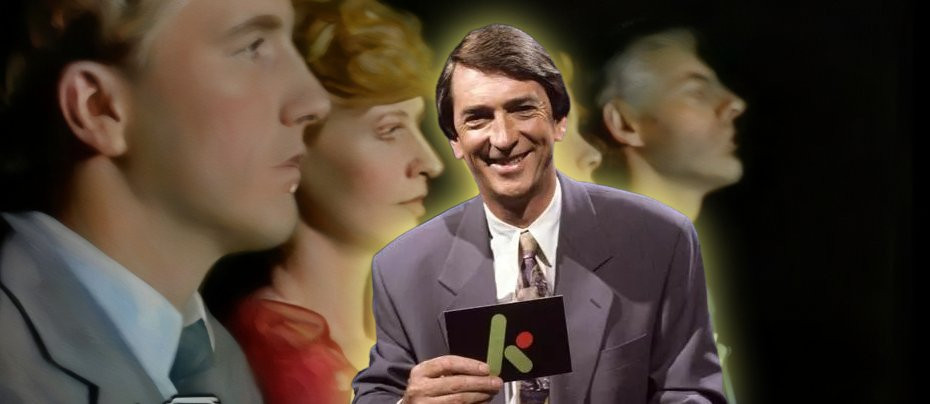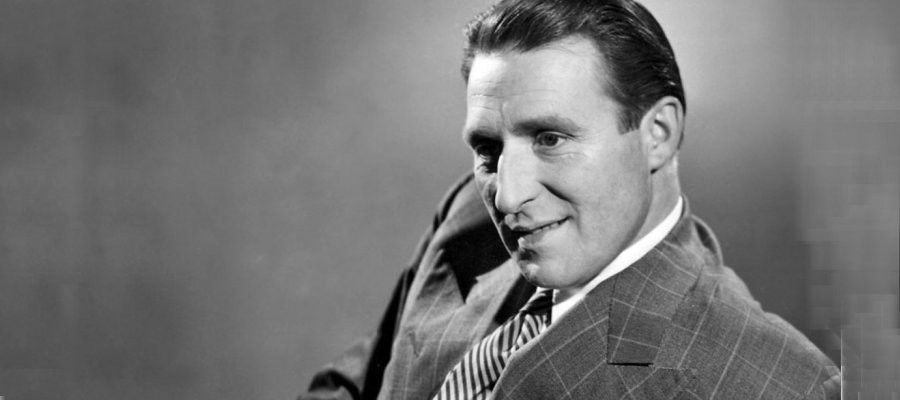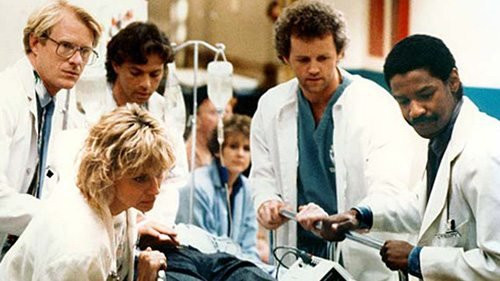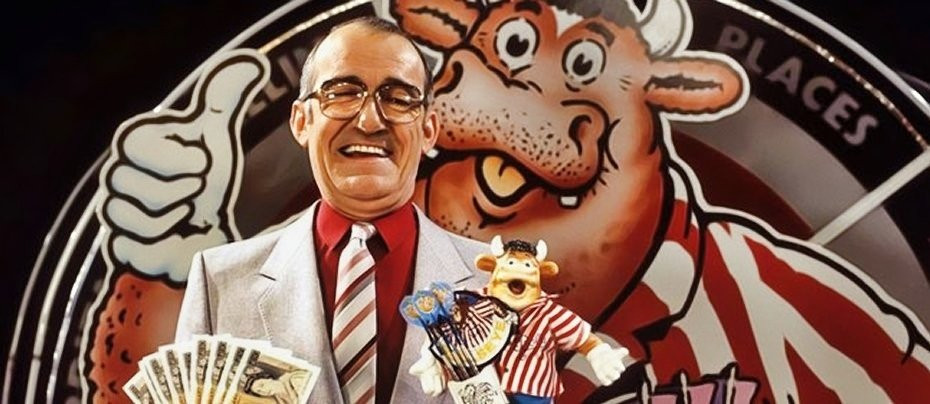
Treasure Hunt
1982 - United KingdomOne of the problems of the world of on-demand television is that successful programmes are rarely seen any more as synonymous with particular moments in time in television history. Friday, five to five meant Crackerjack, Saturday was Tiswas day, and Sunday evenings even seemed reserved for Esther Rantzen introducing Cyril Fletcher’s amusing vegetables in That’s Life.
When Channel Four appeared on the scene in early winter of 1982, the event made near instant hits out of many of its shows. Countdown continues to this day, Brookside remained on screens for over 20 years, and the channel offered a regular Friday night slot for many years in which America’s most successful comedies such as Cheers, Golden Girls, Friends and Frasier would find an audience with British viewers.
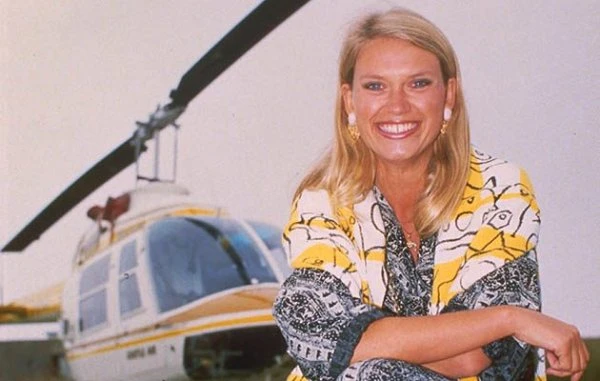
Just as Richard Whitely became an instant hit with viewers hosting Countdown, so another programme introduced in 1982 made an overnight star of its central performer. Treasure Hunt, in true Channel Four style, was no ordinary gameshow. Here, rather than the tried and tested light entertainment approach of celebrities providing the brains to help out Joe Public, it was the turn of the contestants to puzzle out clues and get the celebrity to do the legwork – and in Anneka Rice, they became probably the most overworked legs in television history.
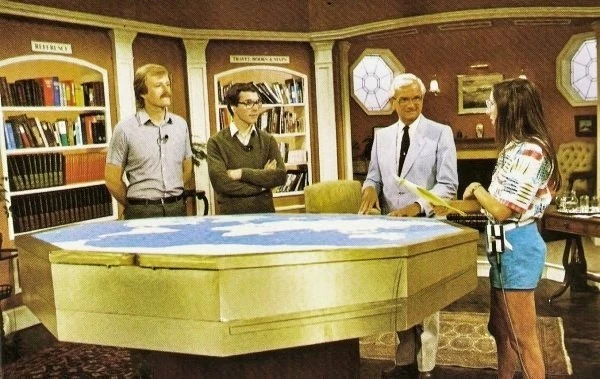
Hosted by respected former BBC newsreader Kenneth Kendall, Treasure Hunt had a simple premise but it was far from simple for its contestants to win. The basics were that they had five clues to solve within 45 minutes and each show involved the two contestants working as a team with Kendall to solve the clues that had been scattered around a particular part of the country.
Aside from the initial clue, the remaining ones were located in places of historical interest in the region in some way linked to the answer of the clue. To get to them, Anneka Rice would be transported via helicopter and run to places under the instruction of the puzzle solvers in the studio.
Each episode came from an area of the country where the research team had stayed and meticulously planned potential routes and flight times to ensure that the clues could be solved and the treasure could be found within around 38 minutes, leaving seven minutes of time in which the team could ponder and research their clues that would always be within a 25 mile radius of Anneka’s starting point.
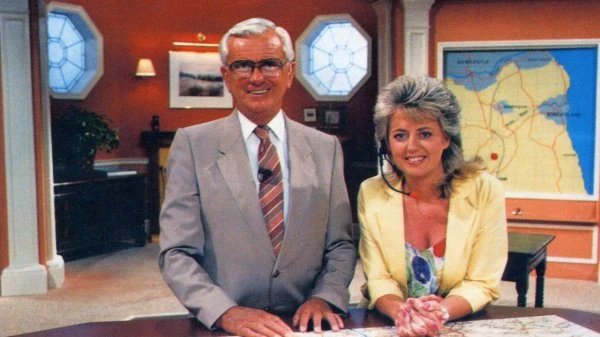
The only person in the studio who knew the answers was the adjudicator, initially little more than a studio timekeeper, but by series three given a far more prominent role in the form of TV-AM’s Wincey Willis. Anneka knew some rough details of the general area, but nothing more specific than that in order to ensure that her travels were restricted to the instructions of the contestants. Pilot Keith took her everywhere, while cameraman Graham Berry followed her on the ground as well as in the air – and won an award for his efforts in trailing the jump-suited Anneka.
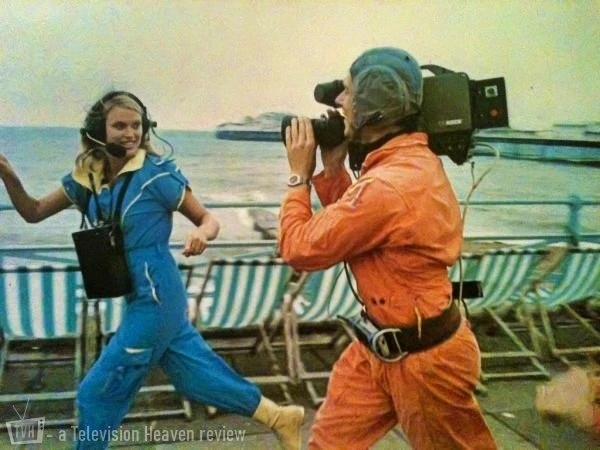
The inspiration for the contestants was limited to books and maps held in the studio from which they had to decrypt their clues. Their communication with Anneka was audio only, so they were trusting as much to her as she was to them.
By today’s standards, the prize was slim…first clue would initially hit the princely sum of £50, and an eventual win would bring in £1000. The format was a curious one that owed as much to its meticulous planning as it did to its on screen entertainment. Watching three people scour through books and maps could have been excruciatingly boring, but Anneka had enough energy and personality to compensate for any lulls in the studio while the contestants pondered the answers to clues akin to non-rhyming 3-2-1 riddles. The music was more news headlines than game show, and the helicopter views and historical interest meant that the programme dipped its toes into quite a crossover of audiences.
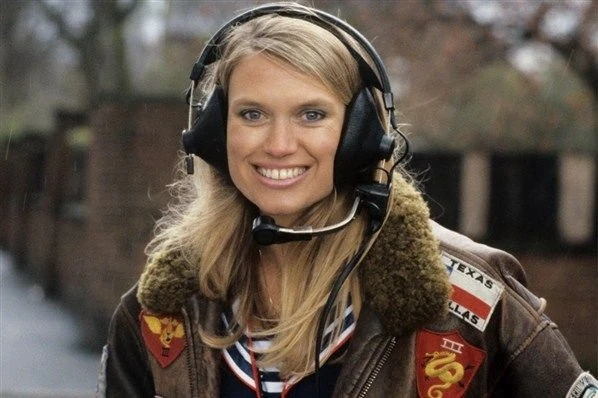
Like many early Channel Four programmes, Treasure Hunt was a glowing success. It went from 300,000 viewers in its early days to in excess of seven million at its peak, while making Anneka Rice a household name. It lasted five series before Rice left to have a child, but as she never returned so the show fell by the wayside. Several reboots have failed to live up to the original, and understandably so. Rice was eminently enthusiastic and likeable, Kendall was authoritative but completely immersed in trying to assist the contestants, and the editing and planning made the programme run like clockwork. As one of Channel Four’s original offerings Treasure Hunt, like a number of others, also turned into one of its most cherished.
About the writer of this article:
Born and raised in Dorset, Brian Slade turned his back on a twenty-five-year career in IT in order to satisfy his writing passions. After success with magazine articles and smaller biographical pieces, he published his first full-length work, `Simon Cadell: The Authorised Biography'.
Brian is a devoted fan of the comedy stars of yesteryear, citing Eric Morecambe, Ken Dodd, Harpo Marx and Dudley Moore amongst his personal favourites. He was drawn to the story of Simon Cadell through not only `Hi-de-hi!' but also `Life Without George', a programme he identified with having grown up in the Thatcher era.
Seen this show? How do you rate it?
Seen this show? How do you rate it?
Published on April 25th, 2021. Written by Brian Slade for Television Heaven.



